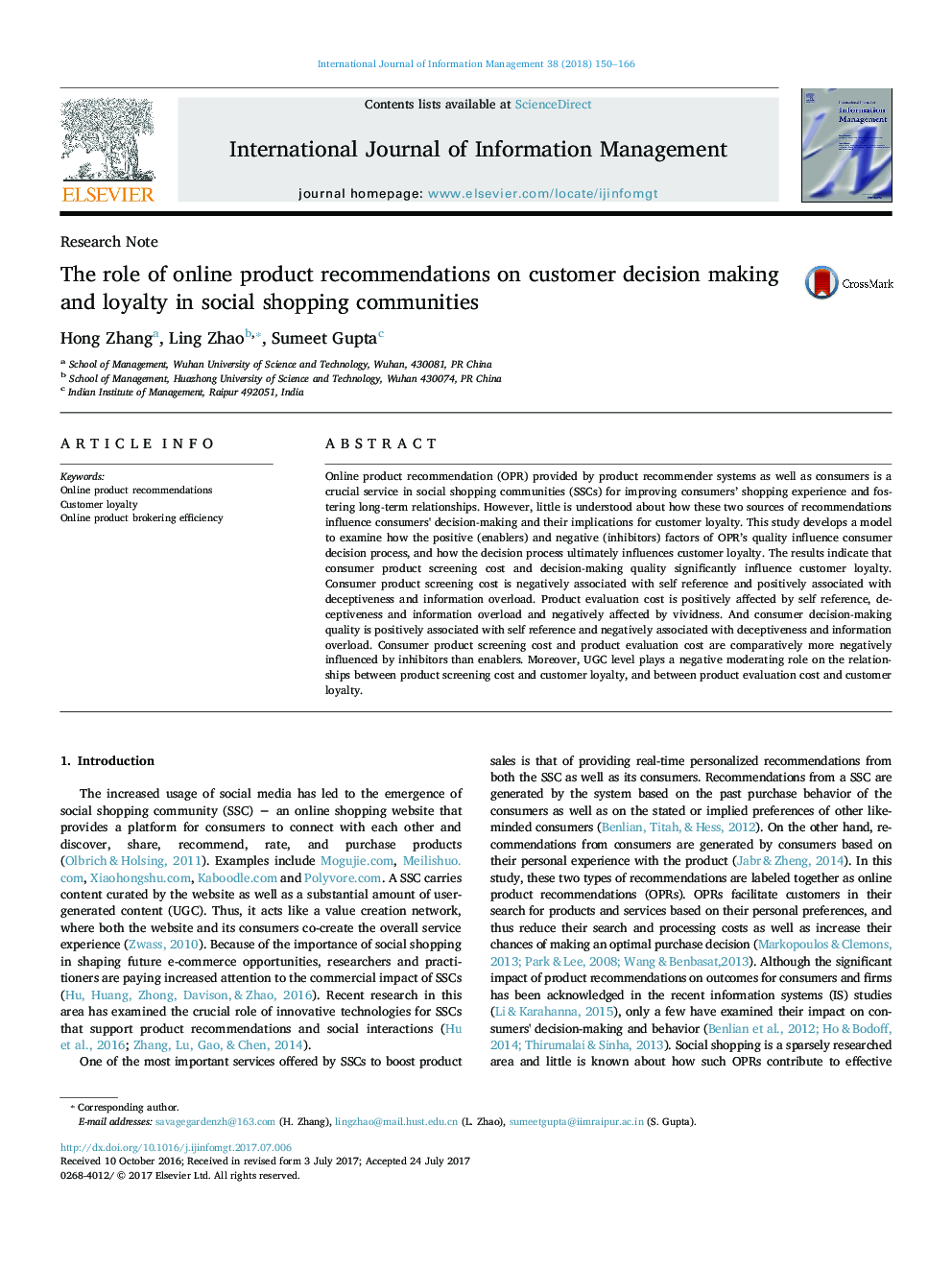| Article ID | Journal | Published Year | Pages | File Type |
|---|---|---|---|---|
| 5110716 | International Journal of Information Management | 2018 | 17 Pages |
Abstract
Online product recommendation (OPR) provided by product recommender systems as well as consumers is a crucial service in social shopping communities (SSCs) for improving consumers' shopping experience and fostering long-term relationships. However, little is understood about how these two sources of recommendations influence consumers' decision-making and their implications for customer loyalty. This study develops a model to examine how the positive (enablers) and negative (inhibitors) factors of OPR's quality influence consumer decision process, and how the decision process ultimately influences customer loyalty. The results indicate that consumer product screening cost and decision-making quality significantly influence customer loyalty. Consumer product screening cost is negatively associated with self reference and positively associated with deceptiveness and information overload. Product evaluation cost is positively affected by self reference, deceptiveness and information overload and negatively affected by vividness. And consumer decision-making quality is positively associated with self reference and negatively associated with deceptiveness and information overload. Consumer product screening cost and product evaluation cost are comparatively more negatively influenced by inhibitors than enablers. Moreover, UGC level plays a negative moderating role on the relationships between product screening cost and customer loyalty, and between product evaluation cost and customer loyalty.
Keywords
Related Topics
Social Sciences and Humanities
Business, Management and Accounting
Management Information Systems
Authors
Hong Zhang, Ling Zhao, Sumeet Gupta,
